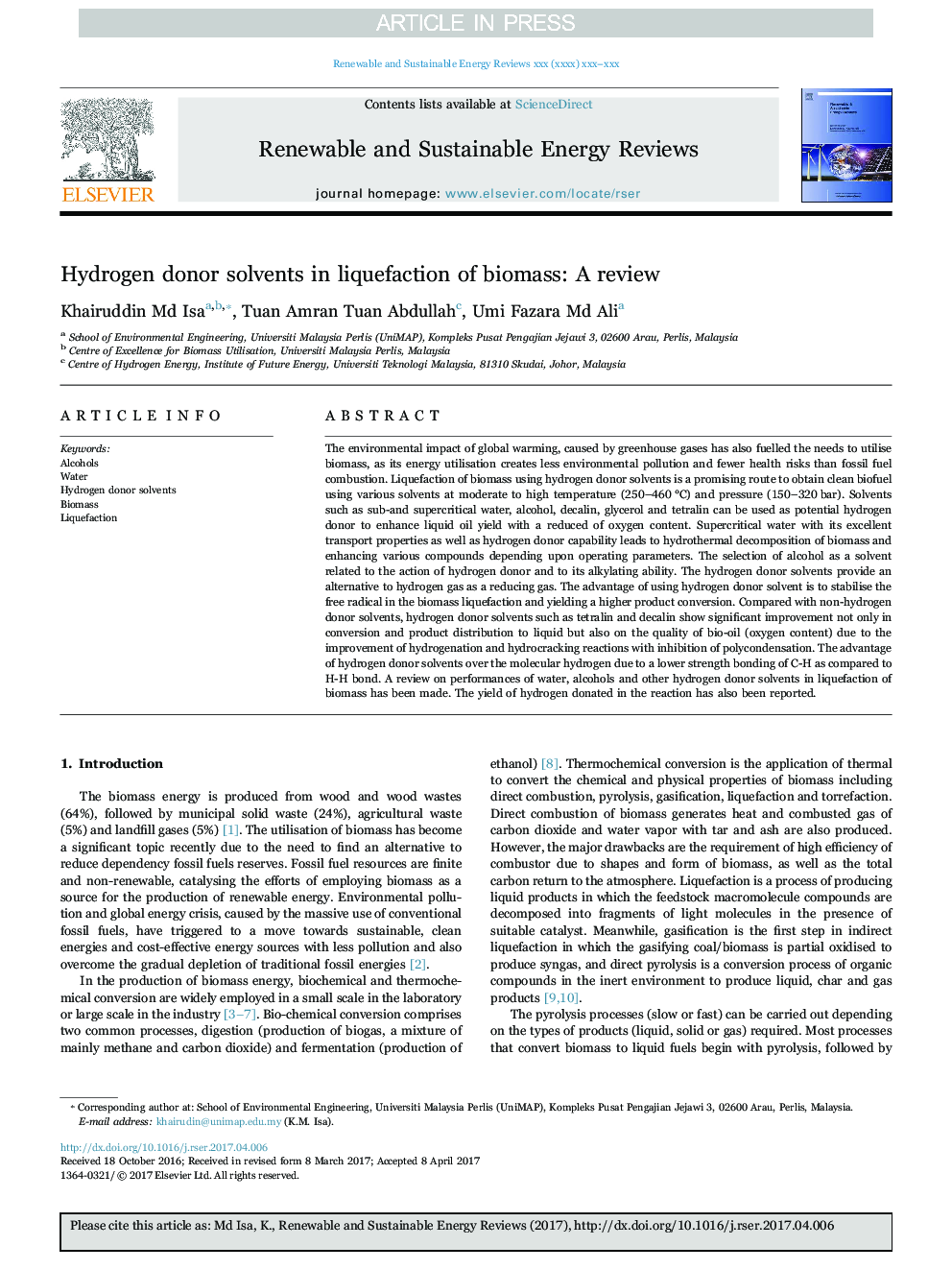| Article ID | Journal | Published Year | Pages | File Type |
|---|---|---|---|---|
| 10998170 | Renewable and Sustainable Energy Reviews | 2018 | 10 Pages |
Abstract
The environmental impact of global warming, caused by greenhouse gases has also fuelled the needs to utilise biomass, as its energy utilisation creates less environmental pollution and fewer health risks than fossil fuel combustion. Liquefaction of biomass using hydrogen donor solvents is a promising route to obtain clean biofuel using various solvents at moderate to high temperature (250-460 °C) and pressure (150-320 bar). Solvents such as sub-and supercritical water, alcohol, decalin, glycerol and tetralin can be used as potential hydrogen donor to enhance liquid oil yield with a reduced of oxygen content. Supercritical water with its excellent transport properties as well as hydrogen donor capability leads to hydrothermal decomposition of biomass and enhancing various compounds depending upon operating parameters. The selection of alcohol as a solvent related to the action of hydrogen donor and to its alkylating ability. The hydrogen donor solvents provide an alternative to hydrogen gas as a reducing gas. The advantage of using hydrogen donor solvent is to stabilise the free radical in the biomass liquefaction and yielding a higher product conversion. Compared with non-hydrogen donor solvents, hydrogen donor solvents such as tetralin and decalin show significant improvement not only in conversion and product distribution to liquid but also on the quality of bio-oil (oxygen content) due to the improvement of hydrogenation and hydrocracking reactions with inhibition of polycondensation. The advantage of hydrogen donor solvents over the molecular hydrogen due to a lower strength bonding of C-H as compared to H-H bond. A review on performances of water, alcohols and other hydrogen donor solvents in liquefaction of biomass has been made. The yield of hydrogen donated in the reaction has also been reported.
Keywords
Related Topics
Physical Sciences and Engineering
Energy
Renewable Energy, Sustainability and the Environment
Authors
Khairuddin Md Isa, Tuan Amran Tuan Abdullah, Umi Fazara Md Ali,
